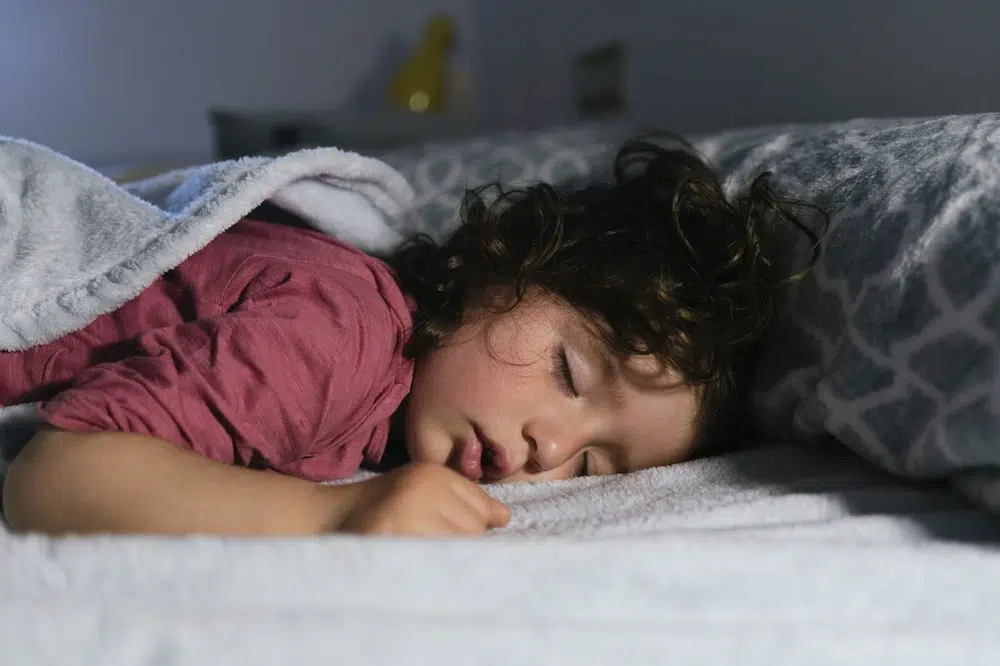
Is Bedwetting Related To Underdeveloped Upper And Lower Jaws?
Bedwetting is a common problem that affects many kids and even some adults. People often wonder why it happens. Can the shape of your jaw be a reason? This topic has made people scratch their heads.
The jaw’s shape can affect how you breathe at night. Some say it might even relate to bedwetting. But the facts tell us that jaw shape and bedwetting are usually not linked.
Most experts say bedwetting happens for other reasons. These include family history, hormones, and sometimes stress.
In this article, we will explore whether bedwetting is related to underdeveloped upper and lower jaws. Let’s get into the discussion.
Understanding Bedwetting
What’s Bedwetting?
Bedwetting means a child pees in bed while asleep. This often happens in kids under 7 years old. Many things can cause bedwetting.
Some kids just take longer to learn how to stay dry at night. It’s not the child’s fault and it’s often not the parent’s fault either.
Some kids also sleep so deeply that they don’t wake up when they need to pee. Stress or big changes can sometimes make bedwetting worse. It’s a common issue and many kids outgrow it.
Developmental Milestones In Children
Kids learn new skills as they grow. These are called milestones. By age 2, many kids start to use the potty.
By age 3 or 4 most kids are dry during the day. But staying dry at night can take longer.
It’s normal for kids under 7 to wet the bed sometimes. When a child older than 7 wets the bed, it’s a good idea to talk to a doctor.
Importance Of Jaw Development
The jaw holds the teeth and helps us talk and eat. A strong jaw also keeps the airways open when we sleep. Some say that a weak jaw can cause problems like snoring.
But, there is no clear proof that a weak jaw causes bedwetting. Other factors like deep sleep or stress usually play a bigger role.
The Link Between Jaw Development And Bedwetting
Impact On The Nervous System
A well-formed jaw helps the nervous system work well. The nervous system controls many things in our body, like when we need to go to the bathroom.
But, there is not much proof to say that a bad jaw makes bedwetting happen more often.
Breathing And Sleep Quality
Your jaw plays a part in how you breathe. A well-formed jaw gives more room for air to flow. Good airflow helps you sleep better.
But, a bad jaw may lead to poor sleep. Poor sleep can make you wake up many times at night, but it is not a proven cause of bedwetting.
Sleep-Disordered Breathing (SDB) Implications
SDB, or sleep-disordered breathing, means you have a hard time breathing when you sleep. A bad jaw can make SDB happen.
Some say SDB and bedwetting have a link. But, we do not have strong facts to say that SDB is a direct cause of bedwetting.
Common Signs Of Underdeveloped Jaws
Mouth Breathing
When the jaw is too small, the airway can get narrow. This makes it hard to breathe through the nose.
So, people often breathe through their mouths instead. Mouth breathing is not good.
It can lead to dry mouth and bad breath. More importantly, it can cause poor sleep.
Dental And Facial Irregularities
A small jaw often means there’s not enough room for all the teeth. This leads to crowded or crooked teeth.
It can also make the face look different. The chin may look weak, and the lips may seem too far apart. These issues often require dental treatment, like braces or even surgery.
Speech And Swallowing Issues
A small jaw can make it hard to speak clearly. People may have trouble pronouncing certain sounds or words.
It can also make swallowing food more difficult. Sometimes, people may even choke on their food. In these cases, you may need to see a speech therapist.
Addressing Bedwetting Through Jaw Development
Non-Invasive Approaches
Doctors don’t agree that jaw development and bedwetting are linked. But if you think the jaw could be a factor, you can try simple steps first.
One easy method is to practice better mouth posture. Keep your lips together and your tongue at the roof of your mouth. This can help with jaw development over time.
Orthodontic Interventions
Some people turn to orthodontics for jaw issues. These are treatments like braces or palatal expanders. They help to shape the jaw and teeth. Doctors don’t agree that this will stop bedwetting for sure.
But a better jaw shape can help with breathing at night. Breathing better at night can sometimes help with bedwetting. But remember, this is not a sure fix for all.
Myofunctional Therapy Benefits
Myofunctional therapy is training for your face and mouth muscles. It helps you breathe, swallow, and even speak better.
It is like exercise for your mouth. Some people say it can also help in jaw development.
Improved jaw development can help you breathe easier at night. This, in turn, can help some kids stop wetting the bed.
Improving Jaw Development For Better Sleep
Proper Nutrition’s Role
Good food helps kids grow strong bones, even in the jaw. Calcium-rich foods like milk and leafy greens are key.
The right vitamins and minerals make a big difference. Balanced meals help the jaw grow the right way and can lead to better sleep.
Encouraging Healthy Sleep Habits
A bedtime routine helps a lot. Kids need to go to bed at the same time every night. Make the bedroom comfy.
Turn off bright lights and loud sounds. A good night’s sleep can help the jaw rest and grow. It also makes kids feel better the next day.
Orthodontic Advancements
Braces and other tools can help fix jaw problems early. New kinds of braces are more comfortable than before.
When a kid has a small jaw, orthodontic tools can help it grow better. Visit the orthodontist early to catch problems fast.
Enhancing Quality Of Life For Children
Boosting Confidence And Self-Esteem
When kids feel good about how they look, they feel better about themselves. Fixing teeth and jaw issues can make a big difference. Kids smile more and make more friends. This makes them more confident in school and in life.
Improved Sleep And Daytime Performance
Good sleep makes kids alert and happy during the day. When the jaw is the right size, it’s easier to breathe at night.
This leads to better sleep. When kids sleep well, they do better in school and have more energy for fun stuff.
The Role Of Comprehensive Care
Taking care of a kid is a team effort. Doctors, dentists, and parents need to work together. Check-ups and regular care can catch problems early. Medicine and treatments work better when everyone is on the same page.
Considering A Multidisciplinary Approach
Collaboration Between Specialists
When dealing with complex problems like health or learning issues, it’s often best to get help from many experts. This is what we call a multidisciplinary approach.
In simple words, doctors, teachers, psychologists, and other professionals work together.
They share their ideas and findings. This way, you get the best plan for treatment or learning.
Addressing Underlying Causes
Looking at the root of the problem is important. Let’s say a kid has trouble reading. The team will dig deep.
They won’t just offer extra reading classes. They’ll check for eye issues, learning disabilities, or even emotional problems.
By finding out the real cause, the plan they make will do a better job of solving the problem.
Holistic Treatment Perspective
Holistic means looking at the whole picture. It’s not just about medicine or just about feelings. It’s everything together.
In a multidisciplinary approach, the team looks at you as a whole person. They consider your body, mind, and even your environment. This helps to find the best way to make you feel better or help you learn more easily.
FAQs
1. Can Underdeveloped Jaws Contribute To Bedwetting?
There’s limited evidence to suggest that underdeveloped jaws directly cause bedwetting. However, jaw issues may lead to sleep problems, which could indirectly affect bedwetting.
2. How Does Jaw Growth Affect Bedwetting In Children?
Jaw growth itself hasn’t been proven to directly affect bedwetting. But if poor jaw development causes sleep issues, it might indirectly play a role in bedwetting for some children.
Final Words
So, is bedwetting related to underdeveloped upper and lower jaws?
Bedwetting is not directly linked to having underdeveloped upper and lower jaws. Many things can cause bedwetting, like family history, stress, or even some medical issues.
But so far, science does not say that jaw size plays a role in it.
So, if you or someone you know has concerns about bedwetting, the best step is to talk to a doctor for advice tailored to your situation.



